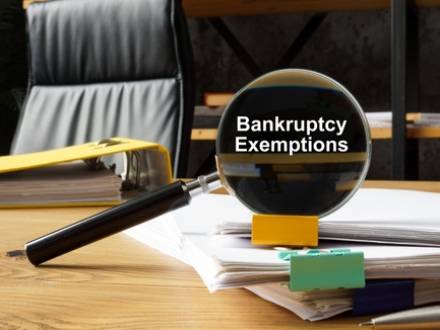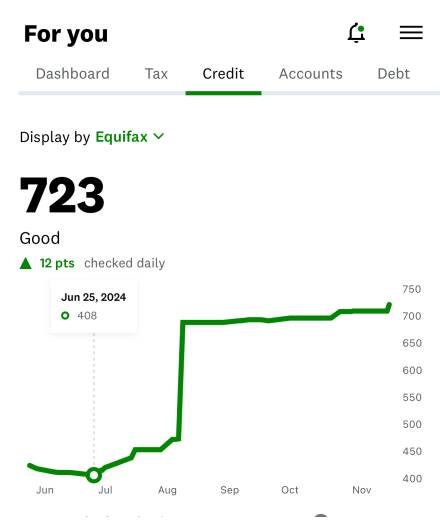Recent Blog Posts
Benefits of Declaring Bankruptcy
 Bankruptcy can sometimes get a bad reputation. Some people have a perception that it is a negative process that will destroy your credit and that only irresponsible people file for bankruptcy. These misconceptions are not accurate; hard financial times can happen to anyone, triggering a buildup of debt that is impossible to get out from under.
Bankruptcy can sometimes get a bad reputation. Some people have a perception that it is a negative process that will destroy your credit and that only irresponsible people file for bankruptcy. These misconceptions are not accurate; hard financial times can happen to anyone, triggering a buildup of debt that is impossible to get out from under.
The truth is that these negative ideas about bankruptcy can hurt individuals and families who would otherwise turn to bankruptcy as a way to get a fresh financial start and clear their debts. To counter that viewpoint, it can be helpful to understand some of the benefits of filing for bankruptcy that can make your life better in bankruptcy and beyond. Discussing these concerns with an experienced Dallas, TX bankruptcy attorney can help.
You Get to Keep Your Assets
Certain important assets are exempt from bankruptcy, meaning that they do not become part of the bankruptcy estate and you get to keep them. In fact, Texas has one of the most generous bankruptcy exemptions, including a homestead exemption that allows you to keep unlimited equity in your home in certain circumstances. If you file for bankruptcy in Texas, you will likely also get to keep your car and other personal property.
Is It Better to File For Bankruptcy or Divorce First?
 Sometimes life throws more than one challenge our way at a time. Such is the case if you are facing the difficult prospect of having to file for bankruptcy and divorce around the same time. Yet this can happen more often than you would think, given the impact of financial struggles on marriages and the heavy financial toll divorce can take.
Sometimes life throws more than one challenge our way at a time. Such is the case if you are facing the difficult prospect of having to file for bankruptcy and divorce around the same time. Yet this can happen more often than you would think, given the impact of financial struggles on marriages and the heavy financial toll divorce can take.
From a purely legal standpoint, there are important considerations to keep in mind when deciding whether to file for divorce or bankruptcy first. An experienced Wise County, TX bankruptcy attorney can advise you on your options for filing bankruptcy or divorce, taking into consideration your debt, property, whether your divorce is amicable or not, and other factors.
How Can Divorce Affect Chapter 7 Bankruptcy?
Because both Chapter 7 bankruptcy and divorce concern the division or distribution of assets, what happens in divorce can affect bankruptcy and vice versa. For example, if a spouse files for bankruptcy some of your joint assets will become part of the bankruptcy estate, meaning that they will not be available for division between the spouses in the divorce.
Secured Credit Cards in Bankruptcy and Beyond
 Life takes money, and one of the ways Americans pay for the things that they need is with credit cards. There are about 600 million credit card accounts in the United States, and approximately 90 percent of American adults have at least one credit card. Credit cards are convenient, yet they are also significant contributors to the massive debt that Americans have, with an average household credit card debt of $8,871, according to recent data.
Life takes money, and one of the ways Americans pay for the things that they need is with credit cards. There are about 600 million credit card accounts in the United States, and approximately 90 percent of American adults have at least one credit card. Credit cards are convenient, yet they are also significant contributors to the massive debt that Americans have, with an average household credit card debt of $8,871, according to recent data.
So while credit card debt is a big reason why many people file for bankruptcy, it is also a convenience and even a necessity in today’s world. After all, building credit is a healthy financial goal, and credit cards help build credit.
One type of credit card that can be a good middle ground to build credit while keeping excessive debt at bay is a secured credit card. That is why it is also potentially a good tool to use after bankruptcy. An experienced Wise County, TX bankruptcy attorney can advise you on the effect of a secured card during your bankruptcy and beyond.
Pros and Cons of Negotiating a Debt Settlement With Creditors
 Debt settlement is a way for people with a lot of unsecured debt – usually credit card debt – to negotiate a realistic repayment plan. Usually, negotiating a debt settlement means that your creditor will agree that you pay a lower sum than what you owe.
Debt settlement is a way for people with a lot of unsecured debt – usually credit card debt – to negotiate a realistic repayment plan. Usually, negotiating a debt settlement means that your creditor will agree that you pay a lower sum than what you owe.
In exchange, you will agree to pay the debt back as a lump sum rather than in installments, and your creditor will "settle" the debt. Debt settlement can be a great way to wipe out much of your credit card debt, but it also comes with significant downsides. An experienced Parker County, TX debt settlement attorney can advise you on whether debt settlement is right for you.
Pros of Negotiating a Debt Settlement
Lowering Your Debt Amount
Probably the biggest benefit of successfully negotiating a debt settlement is that it is an opportunity to lower your debt. It can be a way to deal with a large amount of credit card debt.
How Do You Pass the Means Test for Chapter 7 Bankruptcy?
 If you face significant debt, you may be wondering whether filing for Chapter 7 bankruptcy is the right option for you. One important thing to keep in mind is that to qualify for Chapter 7 bankruptcy, you must pass the "means test." You generally pass the means test if your income falls below the median Texas income. An experienced Fort Worth, TX attorney can advise you on whether you are likely to pass the means test to file Chapter 7 bankruptcy.
If you face significant debt, you may be wondering whether filing for Chapter 7 bankruptcy is the right option for you. One important thing to keep in mind is that to qualify for Chapter 7 bankruptcy, you must pass the "means test." You generally pass the means test if your income falls below the median Texas income. An experienced Fort Worth, TX attorney can advise you on whether you are likely to pass the means test to file Chapter 7 bankruptcy.
What Is The Purpose of the Means Test?
The means test is a protective measure put in place to ensure that high-income individuals do not abuse Chapter 7 to discharge debts they may be able to pay. The means test measures your "means" or ability to pay back debtors and, at its core, is a formula used to determine if your income is low enough to qualify for Chapter 7 bankruptcy, which is the quickest, simplest, and most forgiving form of bankruptcy.
Can Bankruptcy Help Me Avoid Foreclosure in Texas?
 Bankruptcy can sometimes help stop or delay foreclosure in Texas, but it is not a one-size-fits-all solution. It depends on how far the foreclosure has progressed and which type of bankruptcy you qualify for. In a 2025 ATTOM housing report, Texas ranked among the states with the highest numbers of foreclosure filings, showing that many local homeowners are still struggling to keep their homes.
Bankruptcy can sometimes help stop or delay foreclosure in Texas, but it is not a one-size-fits-all solution. It depends on how far the foreclosure has progressed and which type of bankruptcy you qualify for. In a 2025 ATTOM housing report, Texas ranked among the states with the highest numbers of foreclosure filings, showing that many local homeowners are still struggling to keep their homes.
As of 2026, lenders in Texas can move quickly once a homeowner falls behind. Bankruptcy does not erase every mortgage problem, but it can slow things down. If you are worried about losing your home, speaking early with a Parker County, TX bankruptcy lawyer at Acker Warren P.C. is the first step to knowing whether bankruptcy could give you time or options.
How Can Texas Bankruptcy Exemptions Protect Your Assets?
 If you are about to file Chapter 7 or Chapter 13 bankruptcy, you may be concerned about losing some important assets, such as your home and vehicle. The good news is that Texas offers bankruptcy exemptions that can protect your home, car, and certain personal property. The best way to get more information about how Texas bankruptcy exemptions can protect you is to contact a Fort Worth, TX bankruptcy attorney.
If you are about to file Chapter 7 or Chapter 13 bankruptcy, you may be concerned about losing some important assets, such as your home and vehicle. The good news is that Texas offers bankruptcy exemptions that can protect your home, car, and certain personal property. The best way to get more information about how Texas bankruptcy exemptions can protect you is to contact a Fort Worth, TX bankruptcy attorney.
How Do Exemptions Work in Bankruptcy?
When you file for bankruptcy, your "nonexempt" assets become part of the bankruptcy estate. However, some assets are exempt from bankruptcy, meaning that you may keep these assets after you file bankruptcy. There are federal and state exemptions, and in Texas you may choose either the state or federal exemptions up to a certain amount.
What Are Common Texas Bankruptcy Exemptions?
Texas has a number of bankruptcy exemptions, including life, health, and accident insurance, pensions of certain kinds of employees, burial plots, and even a percentage of unpaid commissions. However, the bankruptcy exemptions that you are likely to utilize most often are on your home, car, and certain personal property.
Will Bankruptcy Ruin My Credit Score?
 If you are considering bankruptcy, you might be concerned that doing so will negatively affect your credit score. This concern is understandable. Bankruptcy misinformation is constantly pushed on consumers in hopes of deterring them from filing bankruptcy and discharging their debt. Many people are under the impression that filing bankruptcy will only negatively impact their credit score, but our clients consistently report that filing bankruptcy has improved their scores, and dramatically.
If you are considering bankruptcy, you might be concerned that doing so will negatively affect your credit score. This concern is understandable. Bankruptcy misinformation is constantly pushed on consumers in hopes of deterring them from filing bankruptcy and discharging their debt. Many people are under the impression that filing bankruptcy will only negatively impact their credit score, but our clients consistently report that filing bankruptcy has improved their scores, and dramatically.
Although you may have heard that bankruptcy will destroy your credit score for a long time, that does not have to be the case and often is not. In the long run, and even in the short term, many people will actually see improvements in their credit scores. A skilled bankruptcy attorney can advise you on what to expect if you file bankruptcy.
How Are Personal Loans Discharged Through Bankruptcy in Texas?
 Personal loans, also referred to as unsecured loans, are those that are not tied to security or collateral. They are usually paid in a lump sum to the borrower, who pays back the debt in installments. A personal loan can be a lifesaver in times of financial difficulty, but it is also debt that can become a financial burden.
Personal loans, also referred to as unsecured loans, are those that are not tied to security or collateral. They are usually paid in a lump sum to the borrower, who pays back the debt in installments. A personal loan can be a lifesaver in times of financial difficulty, but it is also debt that can become a financial burden.
If you are overwhelmed with debt and considering bankruptcy, it is important to understand how filing for bankruptcy can discharge personal loans. For more details and for help with your bankruptcy filing, consult a qualified Texas bankruptcy attorney.
How Does Chapter 7 Bankruptcy Discharge Personal Loans?
In Chapter 7 bankruptcy, the borrower’s assets are liquidated — meaning they are sold off — to pay back creditors. Here is how the process works:
How Do Courts Decide Whether to Discharge Student Loan Debt?
 An estimated 43.6 million Americans have student loan debt totaling approximately $1.753 trillion, with the average household owing about $38,000. This can feel overwhelming to a borrower, especially one who has other debts.
An estimated 43.6 million Americans have student loan debt totaling approximately $1.753 trillion, with the average household owing about $38,000. This can feel overwhelming to a borrower, especially one who has other debts.
It is possible to discharge your student loan debt by filing bankruptcy, though it is not like discharging other types of debt. In Texas, courts look at certain factors and use specific methods when deciding whether to discharge student loan debt, such as the Brunner Test and the Totality of Circumstances Test. The best way to find out if you would qualify for a student loan debt discharge is to consult a Texas bankruptcy attorney who will review your financial situation and advise you on the next steps.
What Is the Brunner Test?
Under 11 U.S.C. § 523(a) (8) (B), a borrower’s student loan debt may be discharged if paying it back would present an "undue hardship." Since the law does not define this term, courts use the Brunner Test to determine what constitutes undue hardship. The Brunner Test comes from a case called Brunner v. N.Y. State Higher Education Services Corp and uses the following three criteria to determine whether a borrower would face undue hardship by repaying student loans:









